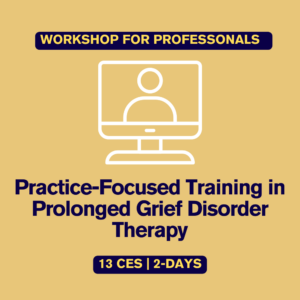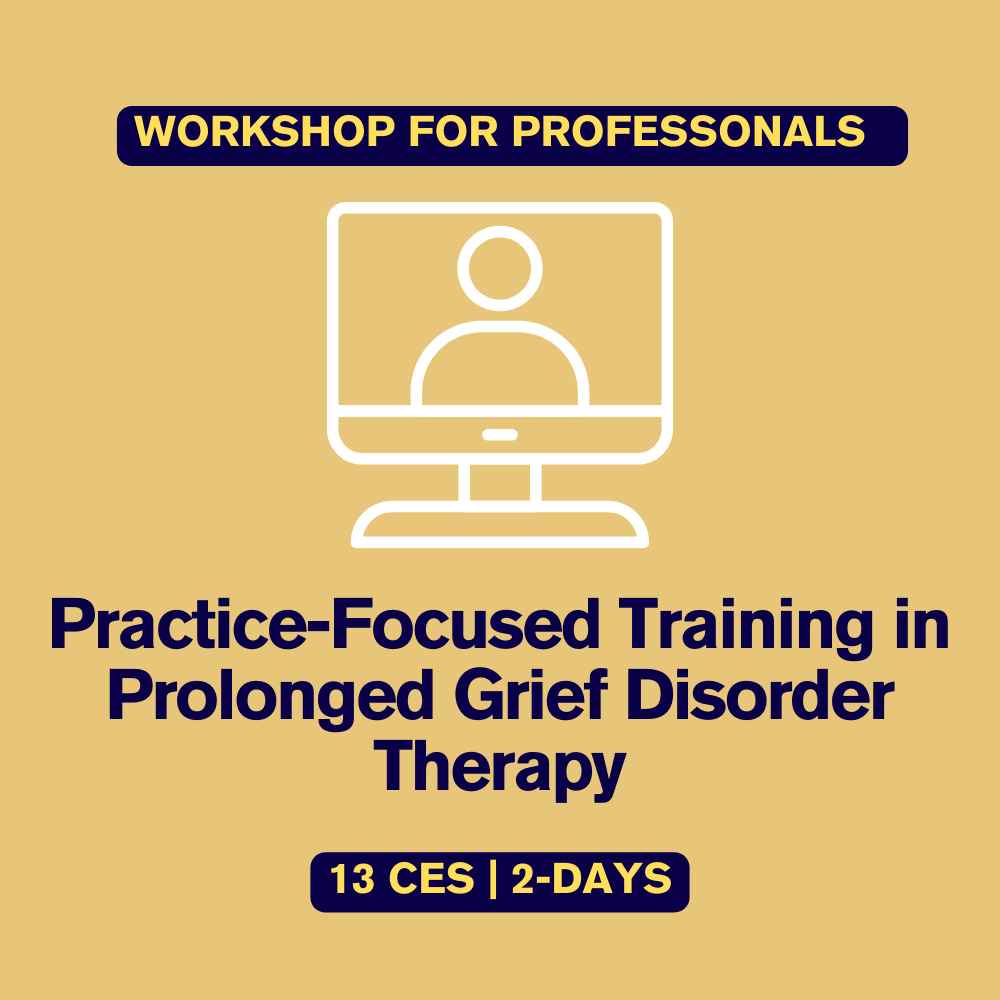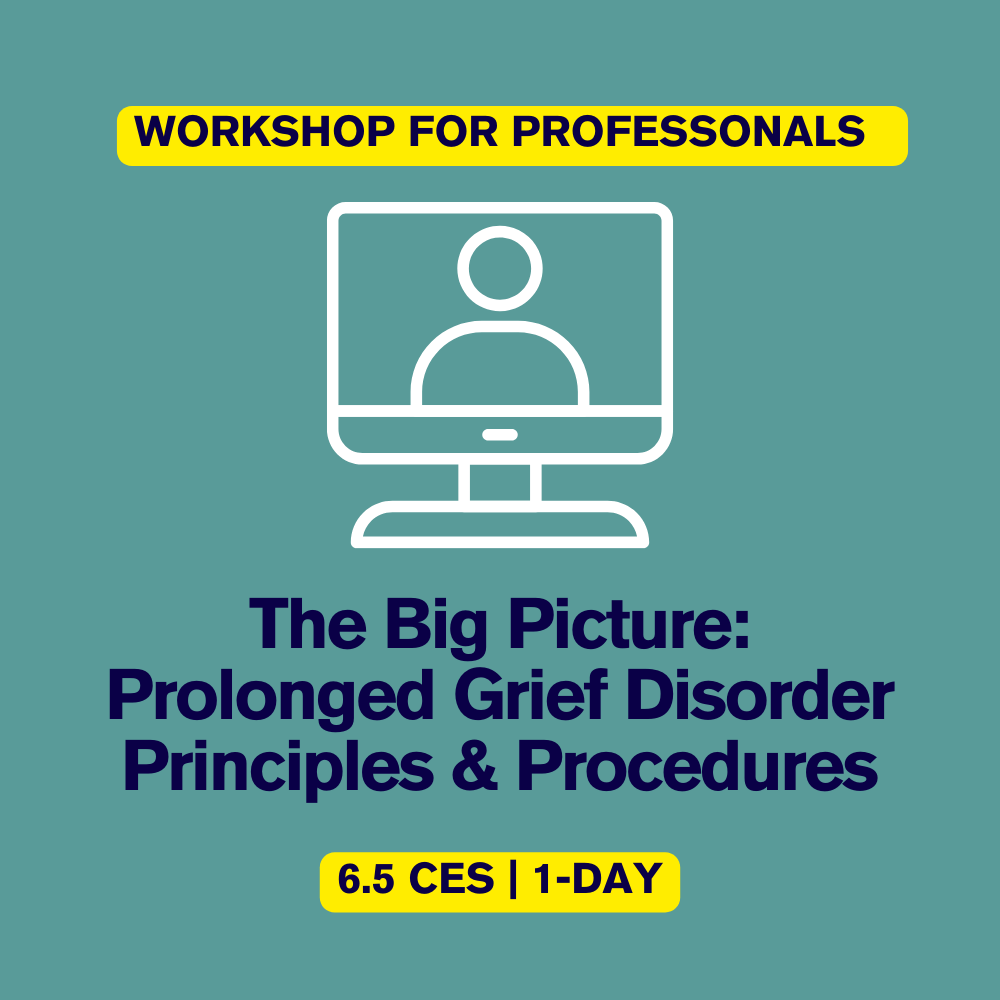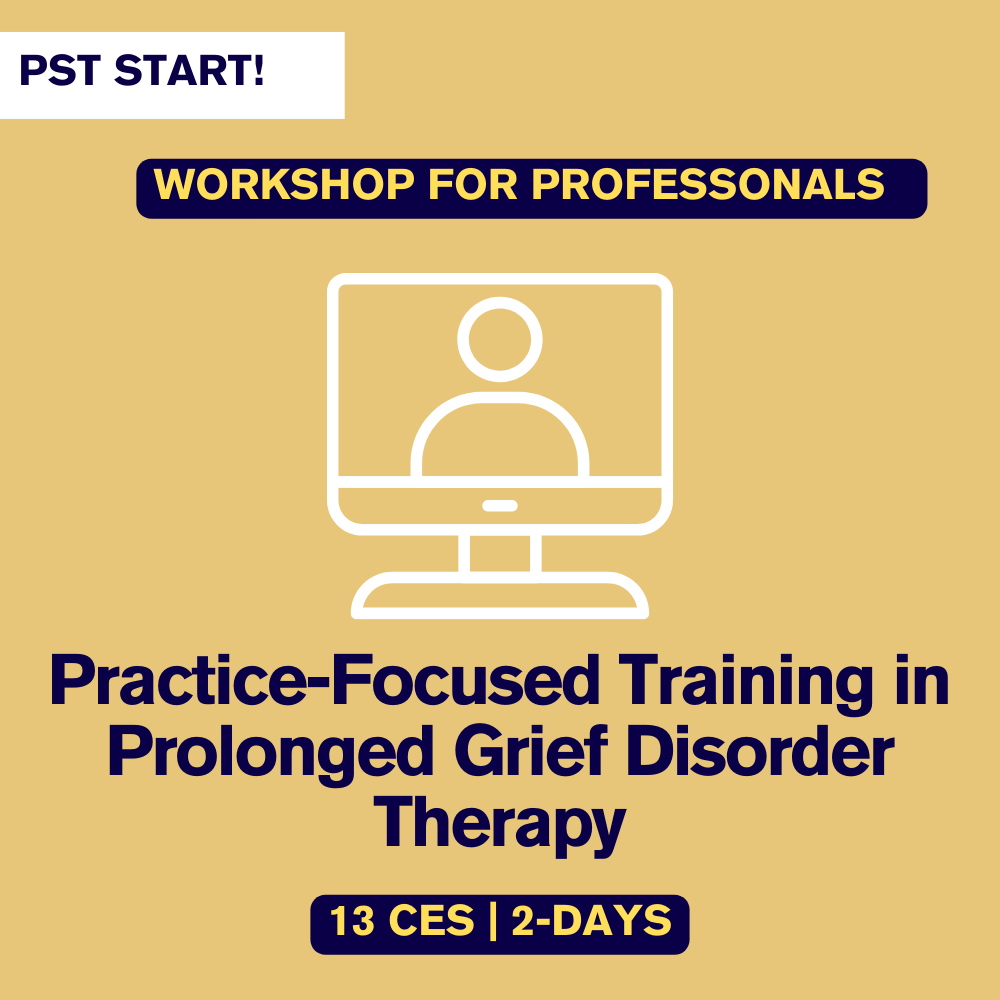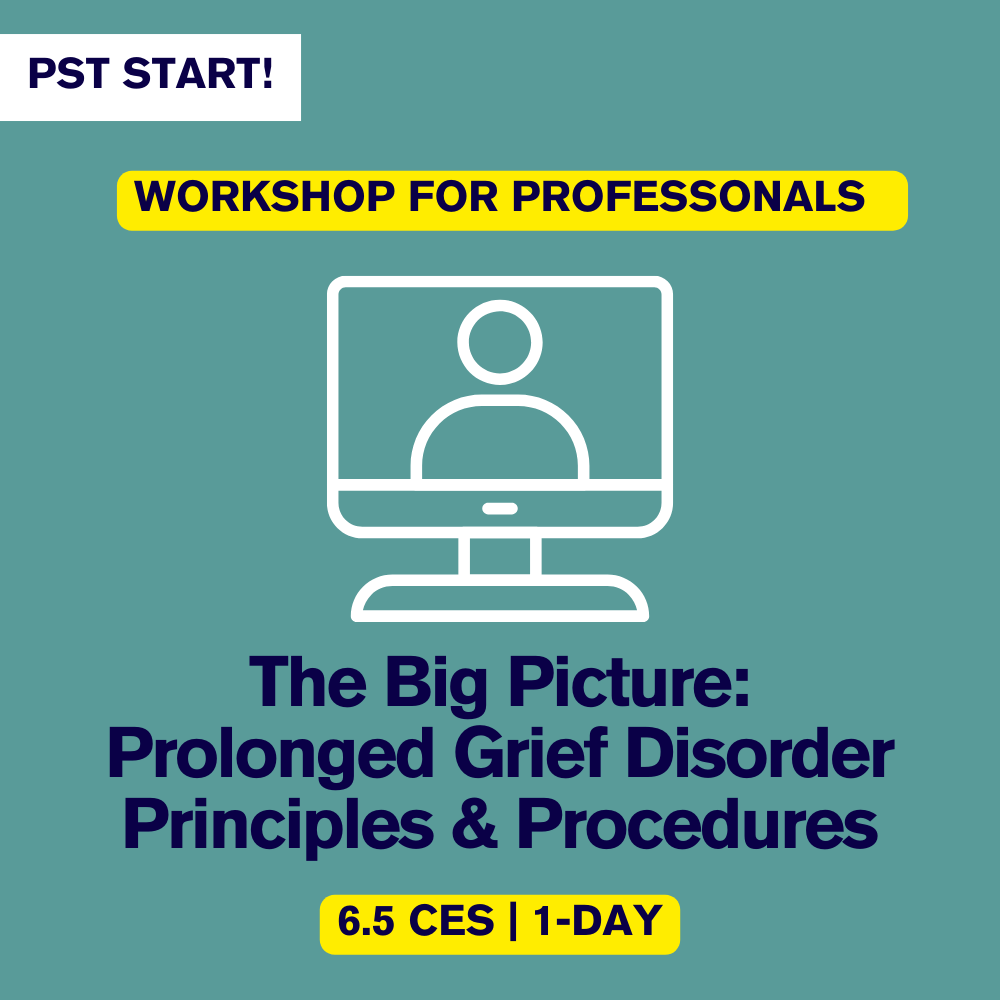Subtotal: $487.50
Product Description
Prolonged grief disorder (PGD) is a debilitating disorder characterized by intense emotional and physical complications that can compromise the health and quality of life of those who suffer from it. Black Americans may be at a higher risk of developing PGD, due to risk factors related to experiencing the death of a loved one as a result of difficult circumstances (e.g., police or community violence, disparities in healthcare that may increase the risk of dying from a preventable health concern, etc.). Black Americans also are negatively impacted by experiences of historical and contemporary racism and trauma which further adds to the risk of developing PGD. Though there are resources and interventions aimed at reducing the distress around acute and prolonged grief symptoms, Black communities are less likely to have access to these resources. Even more concerning, these resources are rarely culturally tailored to align with the cultural strengths and risk factors that influence bereavement for Black Americans, reducing their potential effectiveness, accessibility, and acceptability.
During this presentation. Dr. Willis will discuss how racism and historical trauma may impact the grief experience for Black/African Americans, and how to consider these factors when conceptualizing and treating PGD with clients from this community. Using findings from a recent community-based study of grief in the Harlem, New York community, Dr. Willis will also discuss how COVID-19 loss has impacted the grief experience of Black Americans, and how these findings can provide insights on how to culturally tailor interventions for treating PGD in diverse communities. Finally, Dr. Willis will discuss contemporary approaches to increasing outreach/dissemination of grief treatment resources within Black communities, and discuss recent psychosocial interventions for treating PGD in Black communities (e.g., digital interventions, group therapy interventions, etc.).
Learning Objectives
As a result of this seminar, attendees will be able to:
- Discuss how racism, historical trauma, and historical resilience factors influence the experience of grief and PGD for Black/African Americans.
- Identify ways that COVID-19 has impacted the grief experiences for Black/African Americans, and specific risk factors to target in treatment.
- Describe contemporary approaches to delivering PGDT to underserved communities, and discuss at least two examples of culturally tailored grief interventions.
Presenter
Henry A. Willis, PhD received his Ph.D. from the Clinical Psychology program at the University of North Carolina at Chapel Hill and completed an APA-accredited internship at Montefiore Hospital/Albert Einstein College of Medicine. He completed postdoctoral research training at Columbia University’s School of Social Work and the University of Pennsylvania’s School of Social Policy and Practice, and postdoctoral clinical training working with children and adults at Madison Park Psychological Services in New York City. Dr. Willis joined the faculty of the Clinical Psychology program at the University of Maryland, College Park in 2023. His research interests include exploring the relationship between online and offline racial discrimination and mental health outcomes, understanding sociocultural protective factors (i.e., racial identity) and how they impact psychopathology (e.g., depression, anxiety, OCD, PTSD, prolonged grief, etc.) within African Americans, creating cultural adaptations of evidence-based treatments, and utilizing mobile-health and other novel technologies to increase access to mental health treatments for underserved populations. https://psyc.umd.edu/facultyprofile/willis/henry
Registration Fee
$112 – Registration includes attendance at the seminar
Continuing Education Information
Please note that to receive a continuing education certificate of completion, you must attend the entire duration of the workshop live and complete the evaluation survey. There is a 15-minute attendance grace period. Certificates of completion and refunds are not provided for late arrivals or early departures. Please plan accordingly.
**Certificates of completion will be distributed via email 2 weeks after the event to those meeting the attendance requirements.
American Psychological Association | The Center for Prolonged Grief at Columbia School of Social Work is approved by the American Psychological Association to sponsor continuing education for psychologists. The Center for Prolonged Grief maintains responsibility for this program and its content.
Note: Many state boards recognize the APA approval. Please check with your state licensing board.
New York State Education Department
- NYSED State Board for Psychology recognizes the Center for Prolonged Grief as an approved provider of continuing education for licensed psychologists (#PSY-0150).
- NYSED Board for Social Work recognizes the Center for Prolonged as an approved provider of continuing education for licensed social workers (#SW‐0727).
- NYSED State Board for Mental Health Practitioners recognizes the Center for Prolonged Grief as an approved provider of continuing education for licensed mental health counselors (#MHC-0104) and licensed marriage and family therapists (#MFT-0080).
If you are not licensed in New York State: Please check with your state’s licensing board. Many states have recognized our continuing education hours as we are at a CSWE-accredited institution and part of a regionally accredited university. It is your responsibility to confirm you will receive credit hours for this program.
